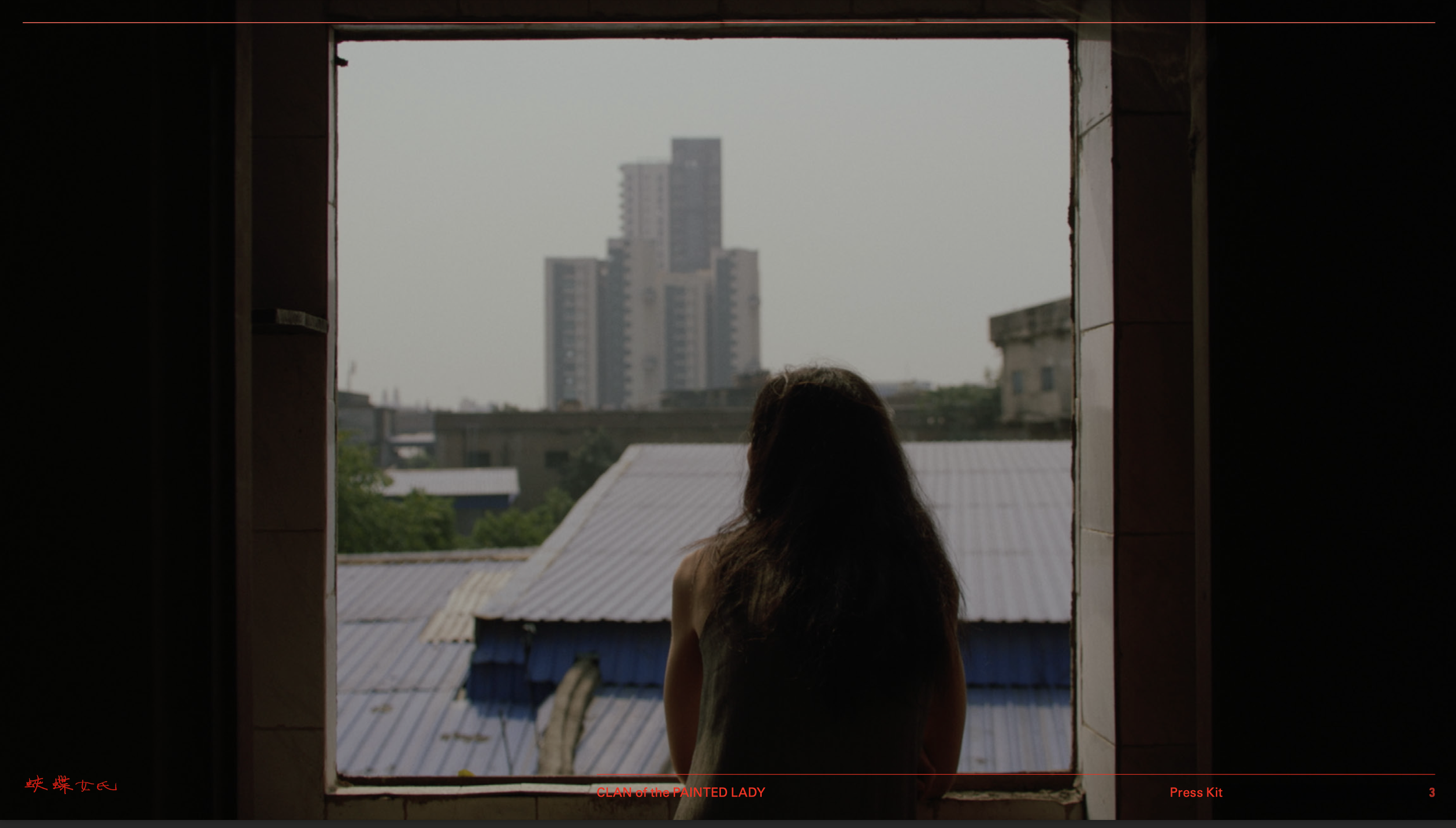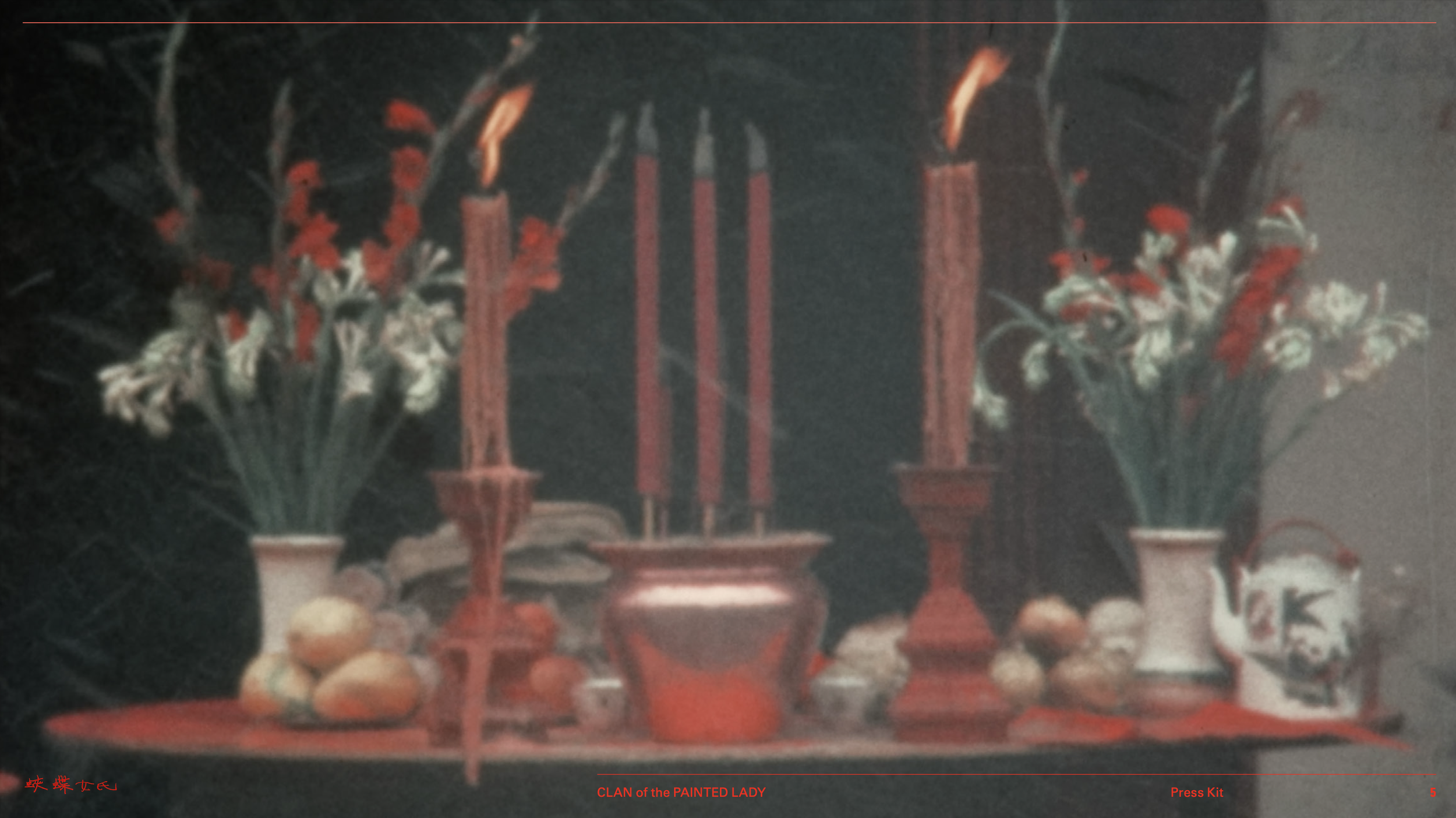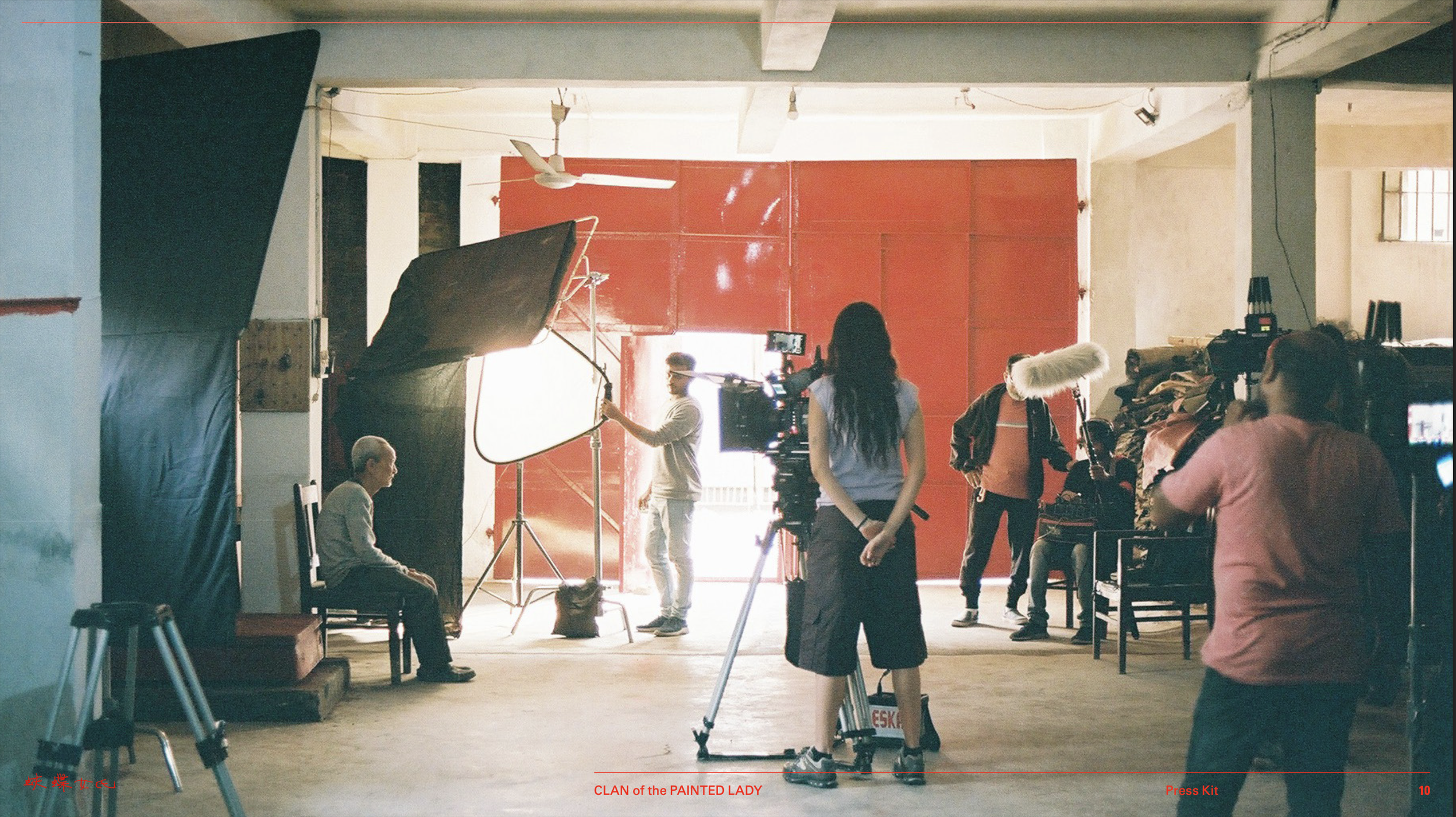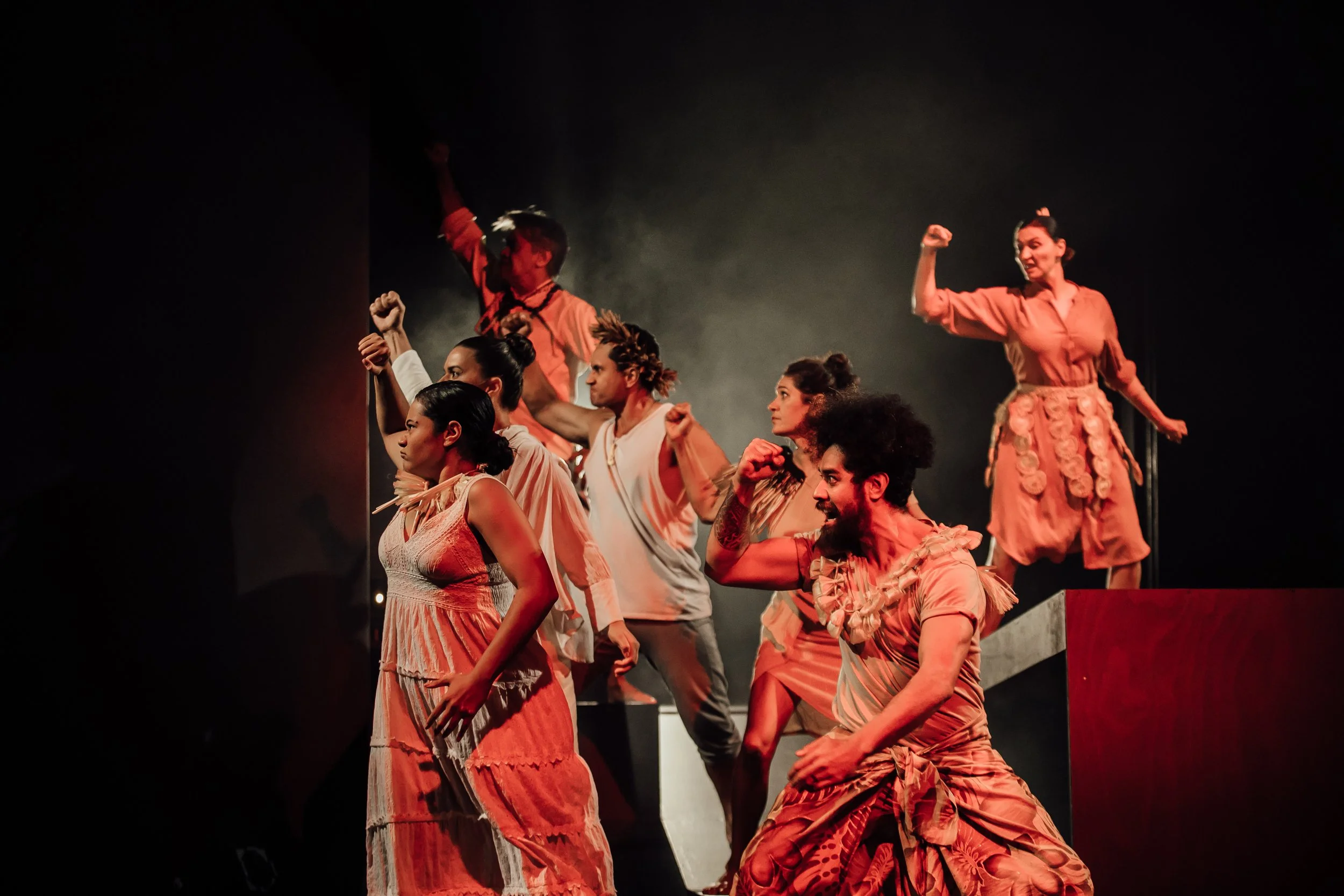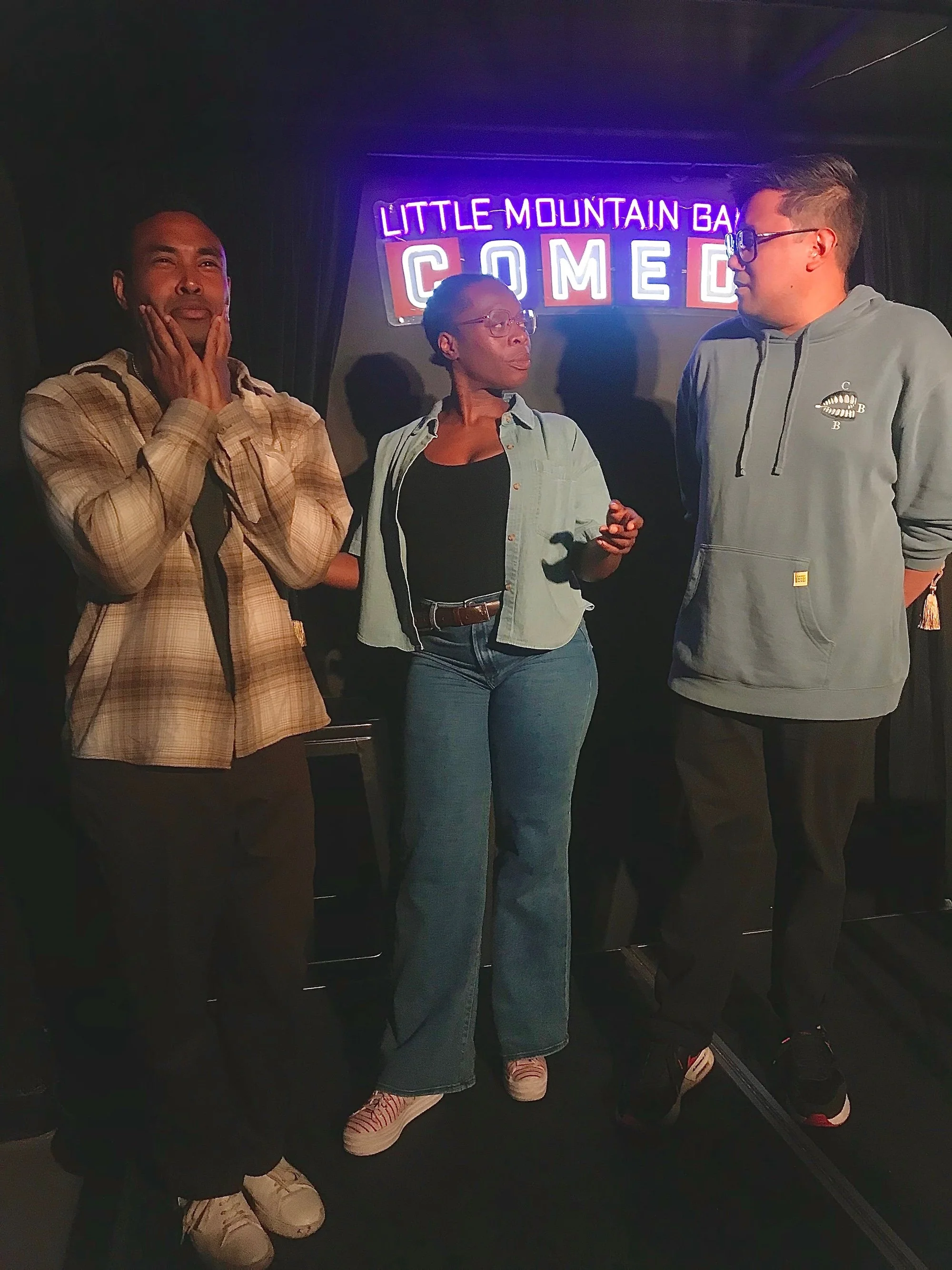Clan of the Painted Lady: Jennifer Chiu's Intimate Documentary on Hakka Heritage
/image courtesy of filmmaker jennifer chiu
A still camera frames an elder in her family kitchen. She is tidying up surfaces with a towel and inspecting the pipes of the sink. The dim lights create distinct contours of shadow and light. A voice emerges from beyond the frame—Dad, can we film you smoking outside? A man’s voice responds: No. His wife finishes drying her hands and looks at the camera, shakes her head and walks away. The lens lingers on the frame without subjects. A narrator’s voice sums up the interaction for viewers: ”In my community, many things are left unsaid. For my family, privacy is both a virtue and a protective measure. It is also a wall.”
Clan of the Painted Lady is a piercing documentary by Jennifer Chiu, about her Hakka heritage and the vast cultural mosaic that encompasses her community that is scattered across the globe. A meandering exploration of a migratory people’s culture, the story mostly revolves around Chiu’s thirst for connection to her dad, a stoic man of few words, who was mostly absent during her formative years in a Vancouver suburb. While many in her community aim to move onwards, embracing the currents of cosmopolitanism, this filmmaker is stubborn about traversing along previously trodden paths, seeking familiarity and authenticity in the former tanneries of Tangra, deserted villages and gravesites of her ancestors in Southern China.
The Hakka community, though ancient, has endured under obscurity. Their origins are mysterious. The culture has been shaped through generations of migrations–from China to India, Mauritius, the Caribbean Islands and North America. These divergent trajectories brim with eclectic stories and existential contradictions. Dissecting Hakka culture under an anthropological gaze is an extraordinary challenge. But the filmmaker pursues the quest with humble curiosity, in the hope to rediscover her patrilineal sense of self.
image courtesy of filmmaker jennifer chiu
Chiu layers her story by pursuing myriad angles of enquiry. Clan of the Painted Lady begins as an autobiographical account, but soon the scope widens. Reams of archival footage contextualize intergenerational odysseys. They throw light on a way of life that has morphed considerably under the forces of time and geographical distance.
By filming candid interviews with Hakka cultural organizers in Vancouver, Greater Toronto Area and Kolkata (a bustling town in India), Chiu discovers an ethnic diaspora of peers and knowledge keepers. They lay bare poignant internal tussles about their Hakka identity. She also makes some friends along the way. These interactions inform the larger-than-life canvas of contemporary Hakka communities. Wide angle views of contemporary hubs in urban centers across continents underline a visceral sense of expansiveness—precursors to becoming immersed within the atmospheric sounds and visuals of these lands.
image courtesy of filmmaker jennifer chiu
Chiu’s investigations reveal preserved pictures, stories and family histories that offer precious insights. The documentary’s subjects demonstrate the community knowledge preserved via culinary expression, embodied traditions, architecture and political assemblies. Through these memories, they carry forward a legacy of collectivism, adaptation and assimilation, even while venerating their Hakka roots. Painted Lady butterflies recur in fleeting glimpses, lending mesmerizing echoes to the overall narrative.
Most of the scenes in Clan of the Painted Lady unfold in front of a stationary frame. This approach allows for restraint, while capturing tenacious moods and candid emotions without editorial intervention. Such scenes masterfully allow the subjects to navigate complex conversations of their own, even while they inadvertently move audiences to empathize, not exoticize. The disjointed stories and shifts across time and geographies capture the preoccupations, yearning and uncertainties of a diasporic voice that aims to metaphorically catch elusive cultural memories by casting large nets of nostalgic longing.
Clan of the Painted Lady will premiere at the Vancouver International Film Festival, VIFF 2025 as part of the Northern Lights series. The screenings on October 6th and October 9th will be followed by a Q&A session with the filmmaking team in attendance. Tickets can be booked here.
Shruthi (she/they) is a writer, zine-artist and cultural worker based in so-called New Westminster, on the unceded and unsurrendered land of the Halkomelem speaking peoples. She loves local theatre and is a regular writer for The Vancouver Arts Review. Distributing radical zines, creating cozy nooks for arts & crafts and soft check-ins with neurospicy peers are her love languages. With a diploma in creative writing from SFU’s The Writers Studio, their poems, short stories and collage-based zines delve into the nuances and wonders of cultural transplantation by drawing from feminist, fantasy writers and solarpunk aesthetics.

